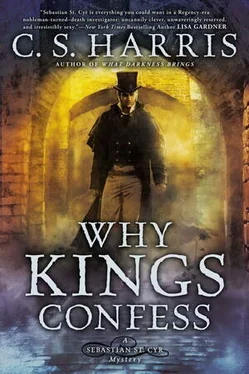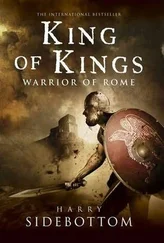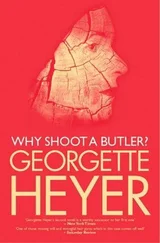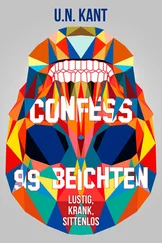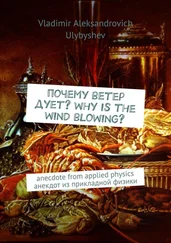C. Harris - Why Kings Confess
Здесь есть возможность читать онлайн «C. Harris - Why Kings Confess» весь текст электронной книги совершенно бесплатно (целиком полную версию без сокращений). В некоторых случаях можно слушать аудио, скачать через торрент в формате fb2 и присутствует краткое содержание. Год выпуска: 2014, Издательство: Penguin Group US, Жанр: Исторический детектив, на английском языке. Описание произведения, (предисловие) а так же отзывы посетителей доступны на портале библиотеки ЛибКат.
- Название:Why Kings Confess
- Автор:
- Издательство:Penguin Group US
- Жанр:
- Год:2014
- ISBN:нет данных
- Рейтинг книги:5 / 5. Голосов: 1
-
Избранное:Добавить в избранное
- Отзывы:
-
Ваша оценка:
- 100
- 1
- 2
- 3
- 4
- 5
Why Kings Confess: краткое содержание, описание и аннотация
Предлагаем к чтению аннотацию, описание, краткое содержание или предисловие (зависит от того, что написал сам автор книги «Why Kings Confess»). Если вы не нашли необходимую информацию о книге — напишите в комментариях, мы постараемся отыскать её.
Why Kings Confess — читать онлайн бесплатно полную книгу (весь текст) целиком
Ниже представлен текст книги, разбитый по страницам. Система сохранения места последней прочитанной страницы, позволяет с удобством читать онлайн бесплатно книгу «Why Kings Confess», без необходимости каждый раз заново искать на чём Вы остановились. Поставьте закладку, и сможете в любой момент перейти на страницу, на которой закончили чтение.
Интервал:
Закладка:
Between them, they eased the French colonel over to reveal the back of his long, slim torso. The purple slit low between his shoulder blades was clearly visible.
“So he was stabbed,” said Sebastian.
“He was indeed. With a dagger. And here’s something interesting: Judging by the angle of the blade’s entry, I’d say it’s a good bet that the man who stabbed him is not right-handed. I could be wrong, mind you; it’s always possible the killer was standing in such a way as to have the same effect. But it’s far more likely you’re looking for a left-handed murderer. I just wish I’d had Pelletan’s body long enough to know if he was stabbed in the same way.”
“The man who tried to kill me-twice-is left-handed.” Sebastian studied the freshly healed scar running the length of the colonel’s right arm. “Doesn’t seem right, somehow, for him to have managed to survive Napoleon’s debacle in Russia, only to be stabbed in the back in London.”
“Bit ironic; that’s for sure. You can bet he didn’t see this as a dangerous assignment.” Gibson paused. “Know if he had any family?”
Sebastian shook his head. “I never asked.”
Together, they turned the corpse again, and Sebastian found he had to look away from that ravaged face. “What can you tell me about the damage to his eyes?”
“I suspect whoever knifed him in the back then took his dagger to the eyes. It’s very crudely done.”
“Like Pelletan’s heart.” Sebastian rubbed his own eyes with a splayed thumb and forefinger, then swiped his hand down over the lower part of his face.
“Any idea why he was killed?” Gibson asked.
“I have lots of ideas. The problem is figuring out which of them is right. He could have been killed by someone intent on disrupting the peace negotiations. Or he could have died because he knew something about what happened to Pelletan.”
Gibson wiped his hands again and reached for his scalpel. “I’m not quite finished here, but I’ll be surprised if there’s anything more to be learned.”
Sebastian started to turn toward the door, then paused to say, “I spoke to Alexi Sauvage just now.”
“Oh?” said Gibson without looking up.
“She tells me Lady Peter’s young ‘brother’ is actually her son-by Damion Pelletan. Did you know?”
Gibson shook his head. “No.”
“She says she was told about the child in confidence and felt honor bound to keep Lady Peter’s secret. But I think that’s not the only thing she’s still holding back from us.”
“She’s very frightened.”
She didn’t strike Sebastian as frightened, but all he said was, “I hope you know what you’re doing.”
Gibson looked up then, his green eyes glinting. “What the devil is that supposed to mean?”
“You know.”
But Gibson only ducked his head again, a flush of anger or chagrin riding high on his gaunt cheeks.
Chapter 41
H ero spent much of the morning in the offices of the Times , talking to John Walter, the editor who was publishing her series of articles on London’s working poor. She handed him her latest piece on the city’s brickmakers. And then she asked him, with studied casualness, if he’d ever heard of a convent in Portugal called Santa Iria.
He stared back at her, his face unusually grim, his eyes blinking several times before he said, “I have, yes. Why do you ask?”
“I want to know what happened there in 1810.”
He pushed up from his desk chair and went to stand at the somewhat grimy window overlooking the fog-choked street, the fingers of one hand worrying his watch chain. “It’s not pretty,” he warned her.
“Tell me.”
And so he did.
• • •
She arrived back at Brook Street to see Devlin standing outside, at the edge of the rear terrace. He had his back to the house, his gaze on the fog-shrouded, winter-browned garden that stretched down to the mews. He still wore his caped driving coat, and she suspected he’d only just walked up from the stables. But there was a brittle tautness to the tilt of his head that reminded her in some indefinable way of the nights she’d awakened in the hours before dawn to find him bedeviled by dreams of a time and place he could not forget.
He turned when she let herself out of the house and walked up to him, her arms wrapped across her chest for warmth. She could see the strain of too many sleepless nights in the hollowness of his cheeks and the dark, bruiselike quality of the flesh around his strange yellow eyes.
She said, “You’ve been talking to Alexi Sauvage again.”
A breath of amusement flickered across his features. “How did you know?”
She shook her head. “I wish to God that woman had never come back into your life.”
He stared out at the thick, killing fog. “It’s not her. She’s simply. . a reminder.”
“I found out today what happened at Santa Iria. You went there, didn’t you?” She kept her gaze on his hard profile. “After you escaped from the French camp. You went there, and you saw what the French had done.”
He nodded, his jaw set hard, his gaze still fixed on the rain-trodden garden below. “I suppose I knew in my heart that I was too late, but. . I kept hoping I might somehow be in time to warn them. To stop. .”
She tried to say something, anything, only to find that she could not.
After a moment, he continued. “I was too late, of course. Major Rousseau and his men had already attacked the convent.” He wrapped his hands around the stone balustrade before him, the wind flapping the shoulder capes of his driving coat. Hero found she could not look at his face. “Santa Iria wasn’t just a convent; it was also an orphanage. The French killed everything that moved, then set fire to the buildings. There was nothing left alive. Not a goat, not a dog, not a babe in its cradle. Nothing.”
From the distance came the crack of a whip, the thunder of hooves from an unseen carriage driven up the street, fast.
“And Antonio Alvares Cabral’s daughter?” asked Hero. “The abbess?”
“Rousseau tried to make her talk, except. . the poor woman knew nothing.” He swallowed. “You can imagine what they did to her.”
Hero suspected she probably could not imagine-did not want to imagine. The editor at the Times had been blessedly vague about the details. She said, “Your dreams. . That’s what you see?”
“Not always. But often. Sometimes I see them not as I found them but as they would have been. . before.”
She said, “It wasn’t your fault.”
“Yes, it was. I’m the one who carried those false dispatches into French hands. My ignorance in no way excuses either my gullibility or my culpability. I knew what sort of man Oliphant was.”
“But-how could anyone have known what he intended? He deliberately sent the French against that convent, hoping that their brutality would drive Alvares Cabral into the arms of the British.” She hesitated. “Did it work?”
Devlin shook his head. “No. When the old man saw what the French had done-to his daughter, to the children, to the other nuns-he collapsed and died.”
Hero felt a deep and powerful rage building within her. “And Oliphant? What happened to him?”
“I rode straight from the blood-soaked ruins of the convent to our camp. I was going to kill him. I knew I’d hang for it, but I didn’t care.” Devlin huffed a soft sound devoid of any trace of humor. “He’d been recalled to headquarters. His older brother had died, and he’s now Lord Oliphant. Last I heard, he’s been appointed Governor of Jamaica. I’ve never seen him again.”
“And then you sold out?”
“Yes. Although it wasn’t only because of Oliphant and Santa Iria. That was simply the culmination of so much that had gone before. We like to think we’re more civilized, more honorable, more righteous than our enemies, but we’re not. Just ask the dead women and children of Copenhagen, of Badajoz, of Dublin, of a thousand forgotten hamlets and farms. And once you realize that, it does rather beg the question: Why am I fighting? Why am I killing?”
Читать дальшеИнтервал:
Закладка:
Похожие книги на «Why Kings Confess»
Представляем Вашему вниманию похожие книги на «Why Kings Confess» списком для выбора. Мы отобрали схожую по названию и смыслу литературу в надежде предоставить читателям больше вариантов отыскать новые, интересные, ещё непрочитанные произведения.
Обсуждение, отзывы о книге «Why Kings Confess» и просто собственные мнения читателей. Оставьте ваши комментарии, напишите, что Вы думаете о произведении, его смысле или главных героях. Укажите что конкретно понравилось, а что нет, и почему Вы так считаете.
